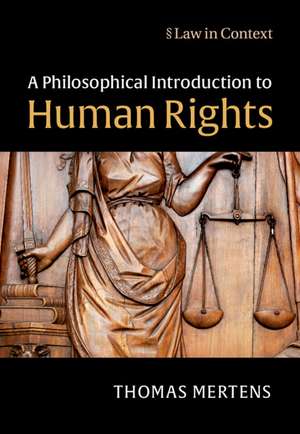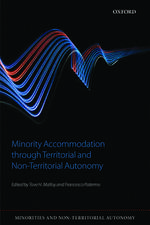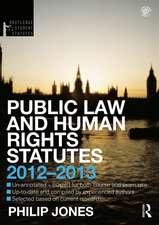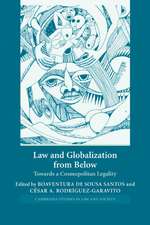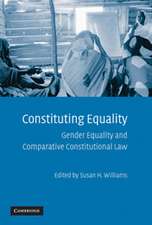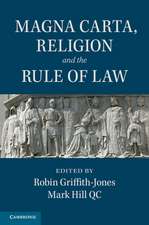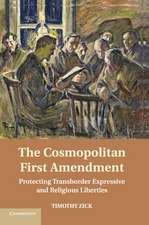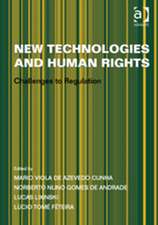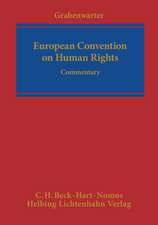A Philosophical Introduction to Human Rights: Law in Context
Autor Thomas Mertensen Limba Engleză Paperback – 23 sep 2020
| Toate formatele și edițiile | Preț | Express |
|---|---|---|
| Paperback (1) | 231.76 lei 3-5 săpt. | +20.92 lei 6-12 zile |
| Cambridge University Press – 23 sep 2020 | 231.76 lei 3-5 săpt. | +20.92 lei 6-12 zile |
| Hardback (1) | 703.57 lei 3-5 săpt. | |
| Cambridge University Press – 23 sep 2020 | 703.57 lei 3-5 săpt. |
Din seria Law in Context
- 9%
 Preț: 697.36 lei
Preț: 697.36 lei -
 Preț: 396.47 lei
Preț: 396.47 lei -
 Preț: 231.05 lei
Preț: 231.05 lei -
 Preț: 201.95 lei
Preț: 201.95 lei - 9%
 Preț: 699.67 lei
Preț: 699.67 lei -
 Preț: 230.06 lei
Preț: 230.06 lei -
 Preț: 234.79 lei
Preț: 234.79 lei - 14%
 Preț: 869.10 lei
Preț: 869.10 lei -
 Preț: 315.01 lei
Preț: 315.01 lei -
 Preț: 274.34 lei
Preț: 274.34 lei -
 Preț: 321.38 lei
Preț: 321.38 lei -
 Preț: 314.81 lei
Preț: 314.81 lei - 9%
 Preț: 663.35 lei
Preț: 663.35 lei -
 Preț: 278.81 lei
Preț: 278.81 lei -
 Preț: 233.26 lei
Preț: 233.26 lei -
 Preț: 395.99 lei
Preț: 395.99 lei -
 Preț: 416.21 lei
Preț: 416.21 lei -
 Preț: 316.44 lei
Preț: 316.44 lei -
 Preț: 388.95 lei
Preț: 388.95 lei -
 Preț: 380.93 lei
Preț: 380.93 lei -
 Preț: 267.63 lei
Preț: 267.63 lei - 14%
 Preț: 826.72 lei
Preț: 826.72 lei -
 Preț: 353.89 lei
Preț: 353.89 lei -
 Preț: 267.88 lei
Preț: 267.88 lei - 14%
 Preț: 701.93 lei
Preț: 701.93 lei - 11%
 Preț: 495.94 lei
Preț: 495.94 lei -
 Preț: 334.96 lei
Preț: 334.96 lei - 11%
 Preț: 497.03 lei
Preț: 497.03 lei -
 Preț: 447.63 lei
Preț: 447.63 lei - 11%
 Preț: 567.59 lei
Preț: 567.59 lei - 11%
 Preț: 422.74 lei
Preț: 422.74 lei -
 Preț: 453.38 lei
Preț: 453.38 lei - 11%
 Preț: 607.85 lei
Preț: 607.85 lei -
 Preț: 401.19 lei
Preț: 401.19 lei -
 Preț: 361.16 lei
Preț: 361.16 lei - 11%
 Preț: 581.08 lei
Preț: 581.08 lei -
 Preț: 286.30 lei
Preț: 286.30 lei - 11%
 Preț: 687.20 lei
Preț: 687.20 lei -
 Preț: 394.81 lei
Preț: 394.81 lei
Preț: 231.76 lei
Nou
Puncte Express: 348
Preț estimativ în valută:
44.35€ • 46.55$ • 36.81£
44.35€ • 46.55$ • 36.81£
Carte disponibilă
Livrare economică 20 martie-03 aprilie
Livrare express 05-11 martie pentru 30.91 lei
Preluare comenzi: 021 569.72.76
Specificații
ISBN-13: 9781108402828
ISBN-10: 1108402828
Pagini: 310
Dimensiuni: 169 x 243 x 16 mm
Greutate: 0.54 kg
Editura: Cambridge University Press
Colecția Cambridge University Press
Seria Law in Context
Locul publicării:Cambridge, United Kingdom
ISBN-10: 1108402828
Pagini: 310
Dimensiuni: 169 x 243 x 16 mm
Greutate: 0.54 kg
Editura: Cambridge University Press
Colecția Cambridge University Press
Seria Law in Context
Locul publicării:Cambridge, United Kingdom
Cuprins
1. Legal philosophy and human rights; Part I. Backgrounds of the universal declaration; 2. The political and juridical context of the universal declaration; 3. The philosophical context of the universal declaration; 4. Human dignity; 5. Intermezzo I; Part II. Negative freedom: 6. Everyone has the right to life; 7. No one shall be subjected to torture; 8. No one shall be unfairly punished; 9. Everyone has the right to their own space; 10. Everyone has the right to property; Part III. Positive freedom; 11. Everyone has the right to take part in the government of his country; 12. Everyone has the right to 'nationality'; 13. Everyone has the right to belong; 14. Everyone has the right to a decent standard of living; 15. Everyone has the right to international legal protection; Part IV. Duties and virtues: 16. Intermezzo II; 17. Everyone has the duty to obedience; 18. Everyone has the duty to behave with moderation.
Recenzii
'Thomas Mertens has long been admired as a political and legal philosopher, equally at home in Anglo-American and German thought, who writes with unusual insight about the most important issues in his field. His argument in this book is that human rights are central to the great debates of philosophy of law and it will persuade its audience by the clarity of its exposition and by its adroit and effective use of real-world examples.' David Dyzenhaus, University Professor of Law and Philosophy, University of Toronto
'Thomas Mertens' new book on human rights is a highly perceptive and comprehensive examination of the key questions that are raised by the topic. Mertens sets human rights in the context of legal philosophy and analyses in a systematic way the relationship between morality and law; natural law and positive law; international law and national law. A legal Kant scholar of renown, Mertens turns his attention with good effect to the legal and philosophical study of human rights. Written with freshness and clarity, the book will be accessible to all students of law, politics and philosophy, and members of the public with an interest in the topic. The book is vital reading for the twenty-first century. It demonstrates how we owe a good deal to the war-torn, but ultimately progressive, twentieth century. There are countless interesting examples that are drawn from that turbulent century which enliven the discussion.' Howard Williams, Honorary Distinguished Professor, Cardiff University
'Thomas Mertens' book is much more than a handbook on human rights: it uses this topic as a starting point for introducing the readers to philosophy of law and its many questions. Given the centrality of human rights in our societies, this is a justified, clever move. While analysing some major rights as they are stated by the UDHR, Mertens discusses a wide range of arguments for and against their universal or absolute character. In doing so, he invites us to an intellectual tour de force in which history of philosophy and theoretical argumentation are ingeniously intertwined. This ambitious endeavour goes together with philosophical honesty and restraint: the author never forces his position on the readers; he just presents them with the philosophical tools to form their opinion. Also for this reason, this compelling introduction to philosophy of law is highly enjoyable and instructive.' Alessandro Pinzani, Professor of Political Philosophy at the Federal University of Santa Catarina (UFSC), Brazil
'Thomas Mertens' new book on human rights is a highly perceptive and comprehensive examination of the key questions that are raised by the topic. Mertens sets human rights in the context of legal philosophy and analyses in a systematic way the relationship between morality and law; natural law and positive law; international law and national law. A legal Kant scholar of renown, Mertens turns his attention with good effect to the legal and philosophical study of human rights. Written with freshness and clarity, the book will be accessible to all students of law, politics and philosophy, and members of the public with an interest in the topic. The book is vital reading for the twenty-first century. It demonstrates how we owe a good deal to the war-torn, but ultimately progressive, twentieth century. There are countless interesting examples that are drawn from that turbulent century which enliven the discussion.' Howard Williams, Honorary Distinguished Professor, Cardiff University
'Thomas Mertens' book is much more than a handbook on human rights: it uses this topic as a starting point for introducing the readers to philosophy of law and its many questions. Given the centrality of human rights in our societies, this is a justified, clever move. While analysing some major rights as they are stated by the UDHR, Mertens discusses a wide range of arguments for and against their universal or absolute character. In doing so, he invites us to an intellectual tour de force in which history of philosophy and theoretical argumentation are ingeniously intertwined. This ambitious endeavour goes together with philosophical honesty and restraint: the author never forces his position on the readers; he just presents them with the philosophical tools to form their opinion. Also for this reason, this compelling introduction to philosophy of law is highly enjoyable and instructive.' Alessandro Pinzani, Professor of Political Philosophy at the Federal University of Santa Catarina (UFSC), Brazil
Notă biografică
Descriere
Provides students with an introduction to legal philosophy, using the Universal Declaration of Human Rights to reflect on human rights.
